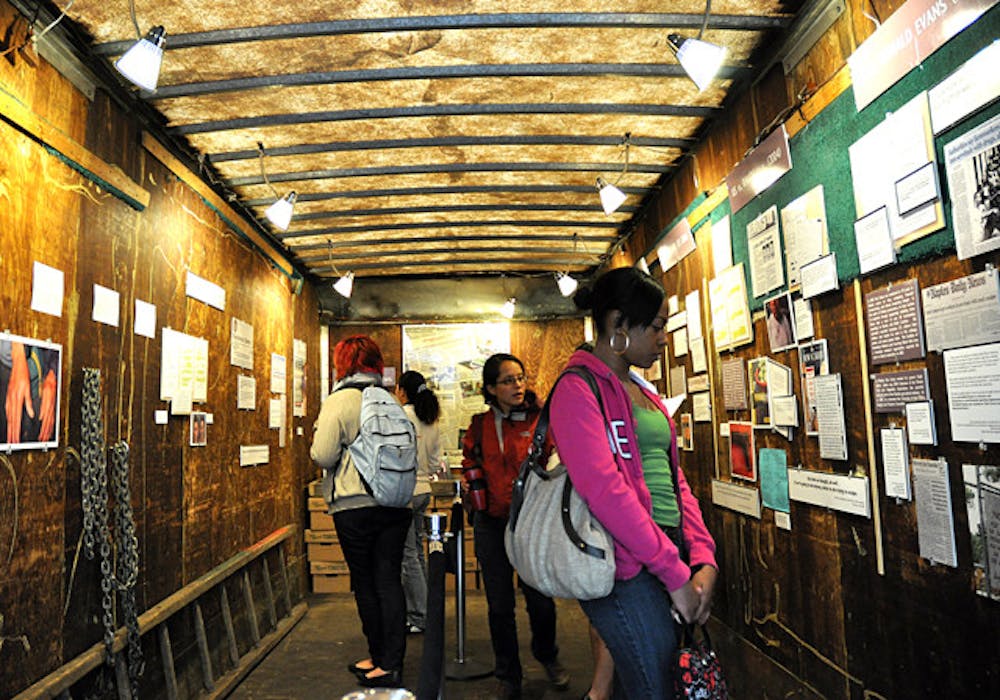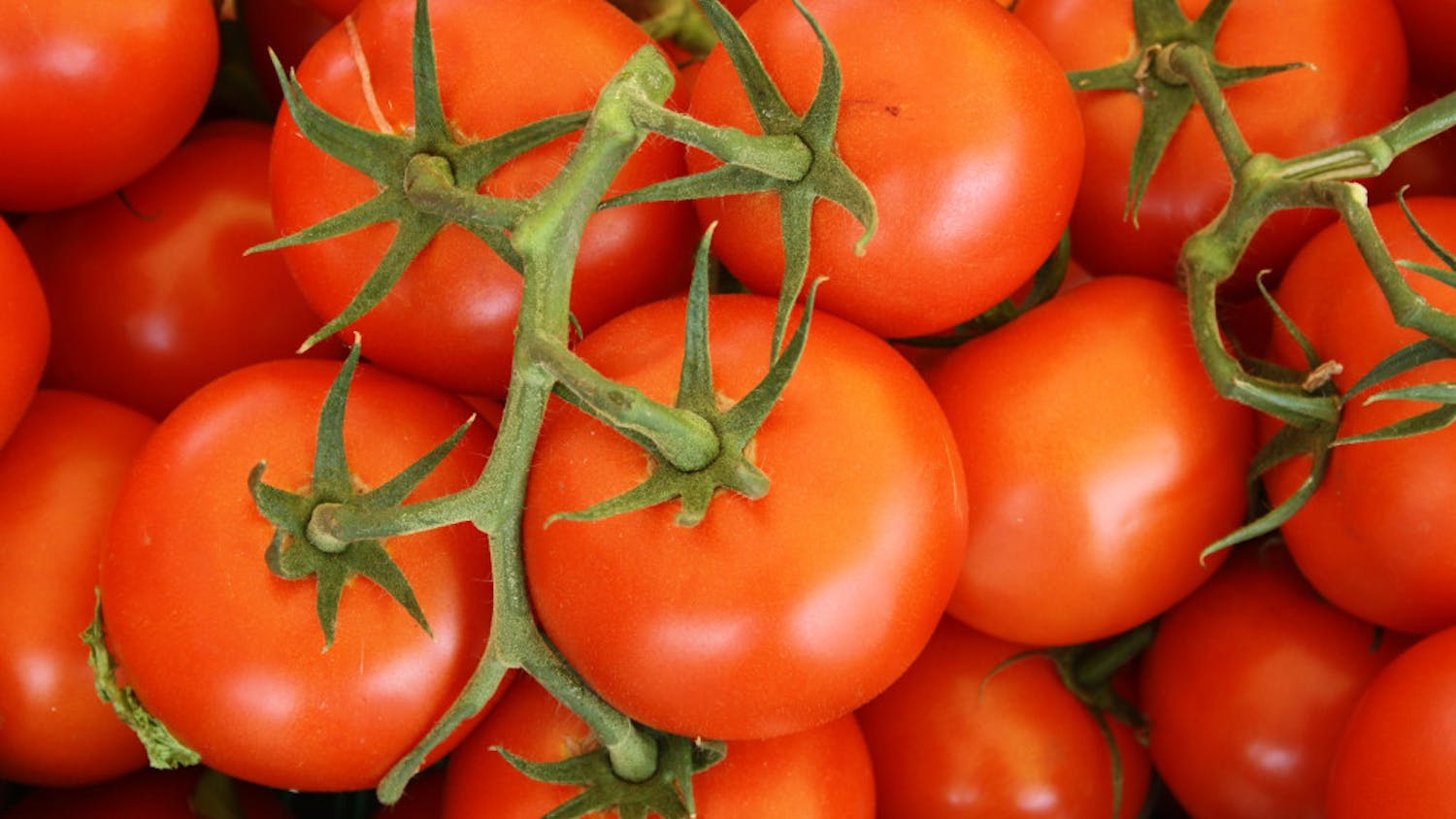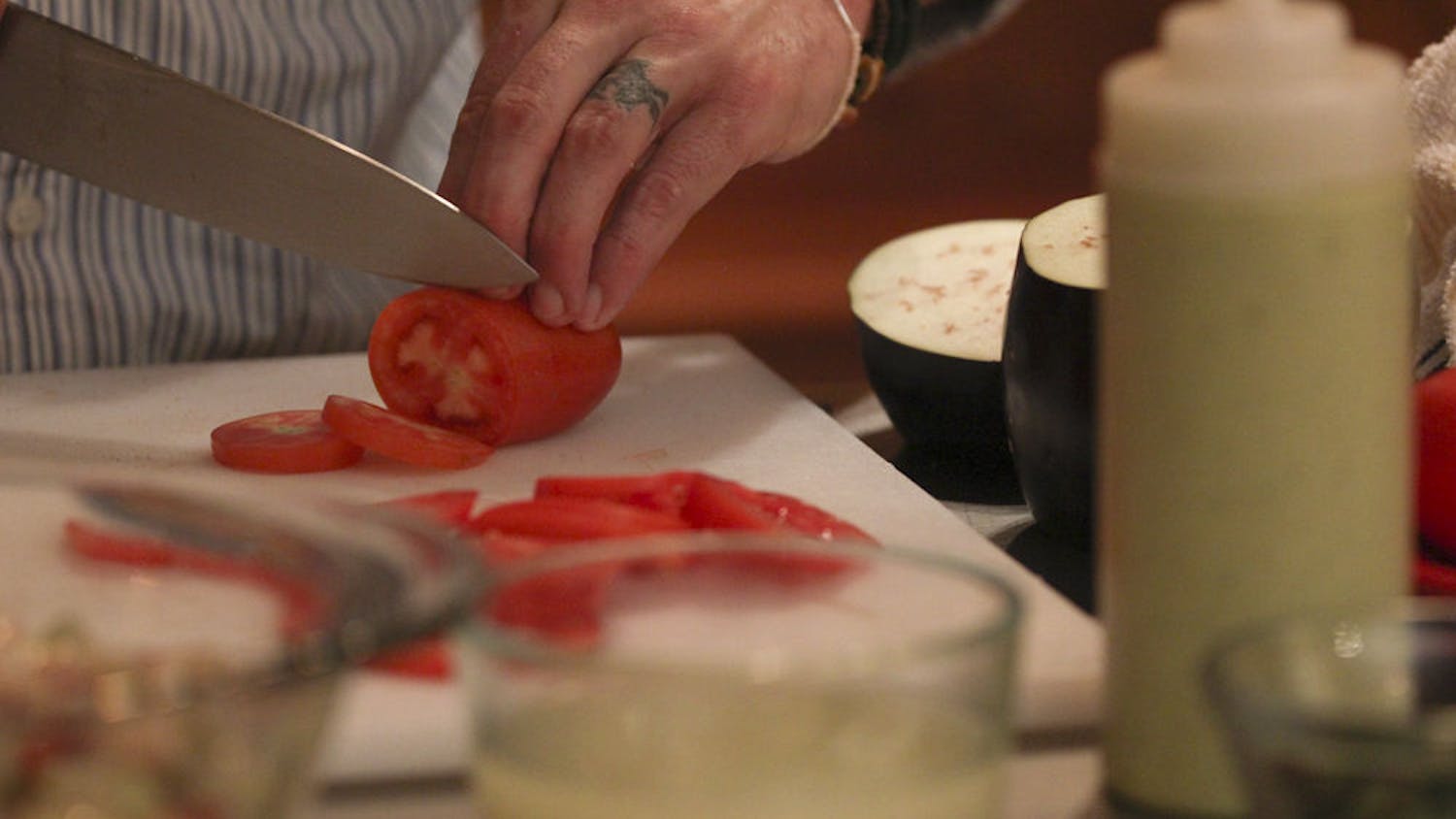A plain white delivery truck with pictures of fruit was parked near Library West on Wednesday, but the inside of the truck was less plain — chain and news clippings with the word “slavery” in every headline covered the walls.
The truck was once used to haul tomato crates from Immokalee, Fla. It served as the centerpiece for a Florida Modern-Day Slavery Museum exhibit that stopped at UF after driving to colleges and community centers across Florida for the past 2 1/2 weeks.
The museum was organized by the Coalition of Immokalee Workers, the Student/Farmworker Alliance and UF CHISPAS, an organization that addresses immigrant-community issues. Its purpose is to inform students about the poverty among Florida farmworkers.
According to the museum’s display, most of the tomatoes in Florida are grown by workers who receive as low as 40 cents for each 32-pound bucket they pick.
Rachel Iannelli, an anthropology graduate student, said she did not realize the extent of the farmworkers’ mistreatment.
“It makes me not want to have tomatoes on my sandwich,” Iannelli said.
The exhibit was not just intended to educate students about Florida farmworkers.
Richard Blake, a member of UF’s chapter of the Student/Farmworker Alliance, said the exhibit also told people about the Farmworker Freedom March that will take place from April 16 to 18. Participants will march 25 miles from Tampa to the Publix corporate headquarters in Lakeland.
“It’s not that people don’t care,” Blake said. “It’s just that they lack access to the information.”






